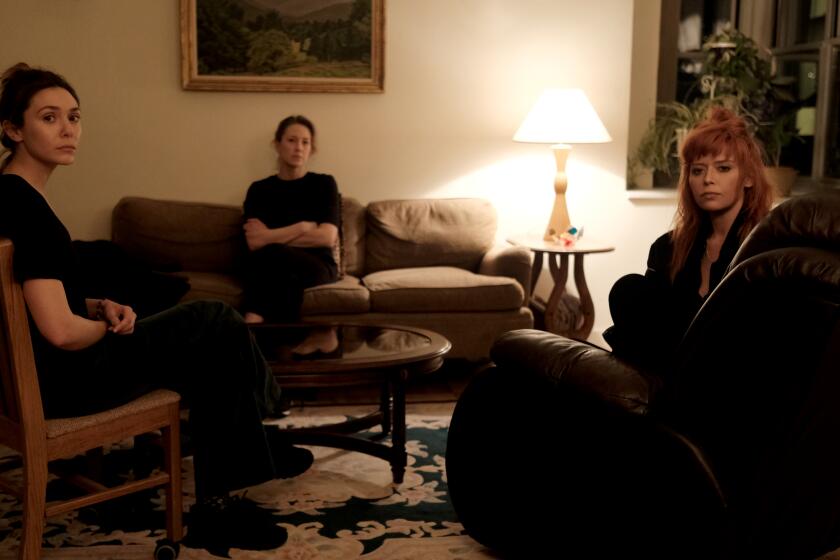Review: Post-Soviet hallucinations drive ‘Generation P’
A down-at-the-heels poet is drawn into the gold rush of post-Soviet capitalism, with outrageous results, in the frequently hallucinatory “Generation P.”
The big-screen adaptation of Victor Pelevin’s 1999 cult novel was a hit in Russia, and though its satiric observations about consumerism and mass media are hardly earth-shattering for American audiences, the movie contains enough fresh insanity and inventive visuals to make it an amusing cyberpunk extravaganza for most of its protracted running time.
Set in early-’90s Moscow, with Boris Yeltsin at the helm of the newly minted Russian Federation, the film follows the strange doings of Babylen Tatarsky (Vladimir Yepifantsev) as a high-flying copywriter in the country’s nascent advertising industry.
A few twisted turns from his “culturally relevant” Sprite campaign find him partaking in the deployment of 3-D doubles and virtual political leaders. As a colleague observes, “every politician is a TV show.” And a botched product placement can lead to a fabricated assassination attempt.
Russian-born, U.S.-based director Victor Ginzburg marshals the kaleidoscope of oligarchs, Chechen mafia and increasingly absurd branding with confidence, and Yepifantsev is a convincingly alienated wordsmith, torn between the new world order and bohemia.
On the latter front, mystic Girevey (Sergey Shnurov) is a source of respite and psychoactive mushrooms, the better for Babylen to pursue his interest in the cult of the goddess Ishtar and commune with the spirit of Che Guevara.
The depraved fantasia of “Vlad Men” ironies and drug-enhanced digressions loses steam as it progresses, even as the insights resonate beyond the film’s out-of-whack landscape.
------------------------
“Generation P.” No MPAA rating; in Russian with English subtitles. Running time: 1 hour, 52 minutes. At the Sundance Sunset Cinema, West Hollywood.
More to Read
Only good movies
Get the Indie Focus newsletter, Mark Olsen's weekly guide to the world of cinema.
You may occasionally receive promotional content from the Los Angeles Times.










